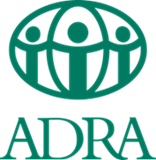
: ADRA Thailand
: Nonprofits / องค์กรไม่แสวงหาผลกำไร
: 1066
: 24 June 2020
7 July 2020
Mid Term Evaluation
ADRA Thailand’s Keep Girls Safe project (KGS) aims to prevent vulnerable children (mainly, but not exclusively, hill-tribe girls) from being exploited and trafficked. KGS is not primarily a shelter, but a conviction to do everything possible to keep vulnerable girls safe from various forms of exploitation, particularly that of human trafficking. KGS is an overarching concept with many components designed to address issues of vulnerability among the marginalized population in Chiang Rai Province. Our projects are designed to complement one another. There are a number of identified factors that predispose a population toward vulnerability such as statelessness, poverty, poor-health and the lack of education. ADRA is actively engaged in the implementations of projects that address some of these factors or actively seeking funding in order to help communities deal with identified issues. Engaging communities to reduce vulnerable factors is our primary goal. Besides providing immediate shelter for highly at-risk girls, we also engage in preventive community activities in designated districts in Chiang Rai Province to address the issues of statelessness, livelihood, health and education. KGS is also anticipating a community-based project that will address the issue of safe migration for stateless women and children in Mae Sai, Mae Fah Luang, Mae Chan and Chiang Saen Districts.
KGS project seeks to reduce vulnerability in selected communities of the families of origin of the girls in the shelter, and children in Chiang Saen District through advocacy campaigns.
Besides these two main community activities. ADRA Thailand will continue to:
1) Provide a shelter for young girls whose surroundings place them in immediate danger for abuse and exploitation. The shelter is located in Mae Lao District, Chiang Rai Province. The shelter provides much more than just a safe place for these children. KGS staff works closely with guardians of these children both at KGS and within their communities. Staff members and children at KGS, bi-annually, take part in raising awareness on topics related to child rights, child exploitation, trafficking and ways and means to protect themselves when in abusive situations.
2) Raise awareness among young children who are at risk due to various contributing factors. Community ‘trafficking and exploitation’ and activities include: peer educator training, child rights and trafficking awareness, raising activities at target schools, networking with partner organizations, working with local authorities to improve systems and policies that will improve trafficking prevention in target communities. This project component is located in Chiang Saen District.
3) Offer scholarships to ease parents’ financial burden so they can remain in schools. Educational support is provided for girls residing in the shelter and at-risk school aged children who can remain with their guardians in Chiang Saen District.
4) Secure legal status for undocumented girls in KGS with an emphasis on the Province of Chiang Rai.
5) Forming a focus group to explore the feasibility of reaching out to teenagers who are highly at-risk for exploitation. This project component targets teenagers who are currently enrolled in non-formal education. Many of these teenagers dropped out of school due to drug abuse, poverty, early pregnancy etc. The research project will assess the needs of this population and help identify ways and means of reducing risk-factor, re-stabilizing their lives, and finding means which will help them get back on their feet financially.
The mid-term programme evaluation will cover 24 months (July 2018 to June 2020). The mid-term evaluation is forward looking and will capture effectively lessons learnt and provide information on the nature, extent and where possible, the potential impact and sustainability of the KGS project.
The evaluation will assess the projects design, scope, implementation status and the capacity to achieve the expected outcomes. It is further intended to collate and analyze lessons learnt, challenges faced and best practices obtained during implementation which will further inform implementation of the remaining period and provide input towards the next project phase.
The consultant is required to briefly present the methodological approach that they will undertake for the assignment and elaborate on the mid-term revision process, tools and data analysis and presentation methods. The consultant is encouraged to present suitable methodology relevant to the assignment but not limited to those as provided in this Terms of Reference (ToR).
Most of the data collected will be qualitative. Some quantitative data will also be collected when necessary and available and limited to the outputs of the previous project phase. Qualitative data collection methods may include interviews, questionnaires with open ended questions, focus group discussions, and observation.
It is expected that the consultant will use a participatory approach to seek the views of beneficiaries and where appropriate, non-beneficiaries. Active participation is expected to include stakeholders and beneficiaries at the different levels.
Upon signing, the consultant and ADRA will have an inception meeting to ensure that both have the same understanding of the MTR objectives, how the objectives of the contract project phase. Based on the agreement during the inception meeting, the consultant will prepare an inception report to be submitted within five days of contract signing.
The consultant is required to provide as part of the assignment an inception report and final report both in print and electronic version. The report is to be presented formally through a briefing meeting/workshop.
The consultant is required to proposed a required timeframe and activity map necessary for the completion of the given deliverables. ADRA estimates that the work is worth 20 days for the assignment.
The consultant should have the following qualification and experience
7. How to Apply
In the subject line of the e-mail, please write “Term of Reference – Mid Term Evaluation”. Please send your CV along with your proposal mentioning methodology, timeline and remuneration expectation to hr@adrathailand.org within 7 July 2020
Please note: Only shortlisted applicants will be contacted.